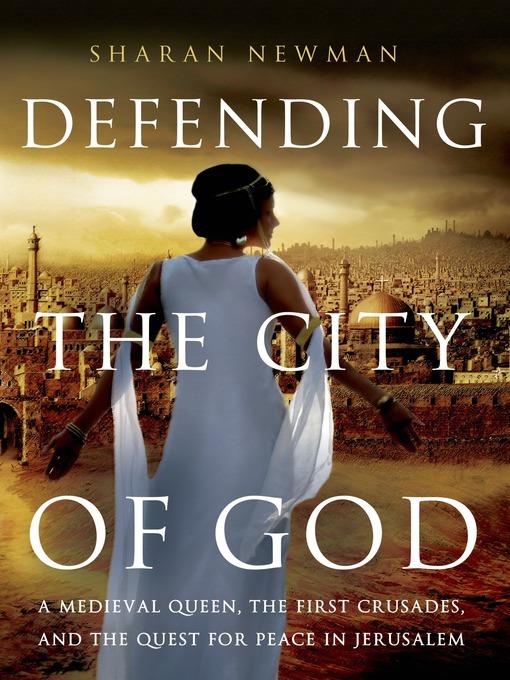
Defending the City of God
A Medieval Queen, the First Crusades, and the Quest for Peace in Jerusalem
- اطلاعات
- نقد و بررسی
- دیدگاه کاربران
نقد و بررسی

March 3, 2014
Medieval historian Newman (The Real History of the End of the World) takes readers to the 12th century Near East, where European Crusaders clashed with Muslim denizens over the territory, with sacred Jerusalem at its center ruled by the dynasty of controversial Queen Melisende. We follow the queen’s father, Baldwin of le Bourq, from his acquisition of Edessa in the Middle East to his election as king of Jerusalem and his death, which resulted in Melisende’s joint coronation with her husband, Fulk. Melisende grew up “subject to the machinations of men with swords and armies” and developed both a keen understanding of the politics of multiculturalism and a sense of diplomacy from observing her father’s mistakes. Newman relates the challenges to her authority, first by her husband, and later by her son, King Baldwin III, and praises Melisende’s sister, Alice, and their shrewd mother, Morfia. Newman also provides the perspective of the Muslim Turks, the first development of “jihad” sentiment, murders of Sunnis by Shi’ite assassins, and atabeg Imad al-din Zengi’s reign of terror. Though Newman’s account relies on a good deal of speculation, it is well-reasoned and effectively corrects a bias against Melisende by historians. Maps.

April 1, 2014
The author of The Real History Behind the Templars (2007) chronicles how the first two crusades helped establish the face of the Middle East. Pope Urban II's First Crusade brought a minor lord of France, Baldwin of le Bourq, to the Holy Land, and he married an Armenian noblewoman. It was their daughters, Melisende and Alice, who ended up ruling Jerusalem and Antioch--but it was far from a foregone conclusion. As Newman (Death Before Compline: Short Stories, 2012, etc.) writes, "[i]t would have been a brave prophet who would have dared to predict that Melisende would become queen of anything." The author provides solid insight into the violent history of an area alternately claimed by Turks, Armenians, Jews, Franks (as the crusaders were called), and Shia and Sunni Muslims. Newman builds her story on the few sources available--e.g., the writings of Fulcher of Chartres and Ibn al-Qalanisi, both of which are decidedly skewed--and that difficulty impedes the flow of the narrative as it necessarily jumps from kingdom to kingdom. The author follows the daughters of Baldwin as their husbands are chosen: Melisende's husband, Fulk of Anjou, was grandfather to Henry II of England, and he was to be a co-ruler and defender of her kingdom. Alice's husband, Bohemond, died in battle, leaving her to defend and eventually rule Antioch. Raymond of Poitiers was brought in to be husband to Alice's daughter, Constance, and he became uncle to Eleanor of Aquitaine, soon to arrive as part of the disastrous Second Crusade. "The damage done by the failed Second Crusade," writes the author, "led to the rise of the emir Saladin and the fall of the city of Jerusalem to him twenty years after Melisende's death." A brief, useful history of the conquerors who came from East and West to build a series of states that continue the fight to this day.
COPYRIGHT(2014) Kirkus Reviews, ALL RIGHTS RESERVED.




دیدگاه کاربران